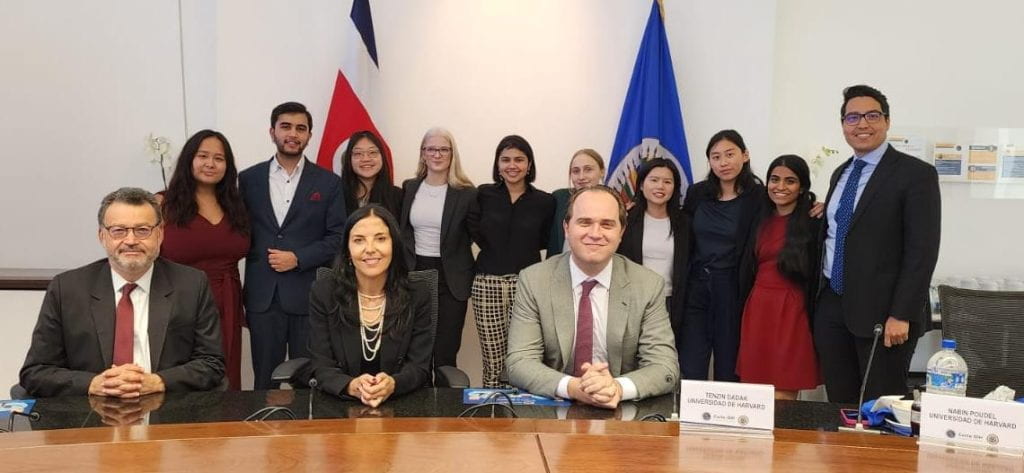Harvard students have the exciting opportunity to join our policy program, taking on projects that will allow you to help some of the world’s leading changemakers develop policy. There is no particular student we are looking for – we are more interested in dedication and energy, as well as an ability to think outside the box, than particular knowledge.
New associates undergo an immersive comp process that will introduce you to the various facets of being a HUFPI associate. We will train you how to think, write and become a policymaker. The selective comp is run twice a year (in the Fall and Spring) and more information will be put up here each time we run a recruitment cycle.
We are also interested in recruiting students with a wide variety of skills who can help ensure HUFPI is able to thrive behind the scenes (finances, relations etc.) – the recruitment processes for these generally runs at the same time as the main associate recruitment.
As part of being a HUFPI associate, you will have the opportunity to travel the world to take your reports to the commissioners themselves, engage with our exciting programs like foreign summits, the scholars program, as well as enjoy our Relations and Professional Development internal programs.
Please note joining HUFPI as an analyst is only open to Harvard Undergraduates.
FAQs for new associates
What does HUFPI (HUFF-PIE) stand for?
The Harvard Undergraduate Foreign Policy Initiative, other useful acronyms are SD (Senior Director) and DD (Deputy Director) (see organisational hierachy) and HUIRSP (the Harvard University International Relations Scholars Program).
Is HUFPI a registered non-profit organization?
Yes, HUFPI is a registered 509(a)(2).
What is HUFPI’s focus?
Foreign Policy, international relations, business, security, diplomacy, and geopolitics.
Can I read the Constitution?
Yes! You can read the current version here. You can also read the previous 2022 version here.
When was HUFPI started?
Founded in 2019 by Sahil Lauji, with the intent to center diverse student perspectives, especially those from traditionally underrepresented backgrounds, in foreign policy decision making and build a coalition of youth change-makers in national security. HUIRSP began in 2021 under the leadership of John Ferguson. To this day we have had partnerships with government agencies or organizations in every continent and region – We even had the late Henry Kissinger at our first HUIRSP Conference (2021).
What is a long-term partnership?
This is for our project partnerships that have been established for a long-term period (usually the course of two years – conducting research typically one-semester per year).
What is HUFPI’s structure?
HUFPI’s structure can look intimidating at first. The organization is led by the Board which is legally responsible for the organisation and meets monthly to take decisions in its best interest. Within the Board there are many different branches which focus on different areas. They are composed of a Senior Director and several Deputy Directors. The Senior Directors, together with the Co-Presidents, make up the Executive (Exec), which meets weekly to take operational decisions for the organization. Associates make up the policy teams, working with a Policy Chair under the supervision of the relevant branch.
Does HUFPI have any famous alumni?
We have had over 300+ students in the organization, some of whome who go on to be Rhodes, Marshall, Schwarzman and Carnegie Scholars. HUFPI associates usually work for foreign governments, the United States Department of State, Department of Defense, the White House, Private Consulting firms (BCG, JP Morgan, Bank of America, etc), and many NGO-oriented organizations.
What is the best means of communication in the organization?
We have an organization called Slack channel that everyone is welcome to join. Additionally, branch teams have their separate channels within Slack.
What opportunities are there for finding community?
HUFPI hopes to create an inclusive and caring community of people interested in foreign policy. Every semester, we host a mix of socials, pre-games, dinners, and a formal to give members a chance to meet one another. In addition, we have a Social Outing Program to facilitate intra-/inter-team and inter-branch outings. Priority is given to non-travel teams and branches.
How often do policy teams travel?
Every semester we aim to have at least 4- 5 policy teams travel to present their projects.






